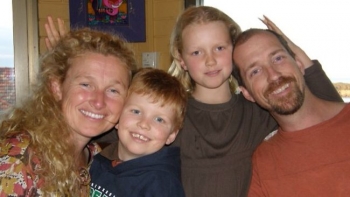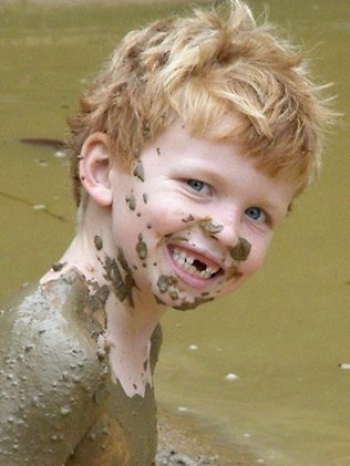May the 8th was Brain Cancer Action Week in Australia. That day was a bittersweet one for eight-year-old Jeremiah Del Tufo, who passed away from brain cancer. Two weeks earlier, he had asked his mother: “Mum, do you believe in reincarnation?” Her reply, understandably, was that she did not know what to believe in anymore. In a bold witness to the spiritual courage and straightforward wisdom of young children, he insisted, “I do. I know I’ll be back.” It was a remarkable and inspiring display of the inner strength that can be cultivated by nurturing surroundings and a loving family. It was an essentially spiritual statement, not only in terms of its content but its purpose in being directed to comfort another person (his own mother!). It was extremely unfortunate that a promising life had to meet such a sudden and agonized end. Yet from our perspective as Buddhists, the Dharmic hope is that to “meet someone again,” be it in a Pure Land or even in sa?s?ra, is always a special reunion between one and another. It is an interconnected relationship that is never severed.
Doctors could not explain why Jeremiah became sick in mid-2009 or why the cancer returned this year. But it is easy to understand the boy’s remarkable courage. Like the inscrutable workings of karma, Jeremiah’s illness was random. But his bravery was not. His fibre and mettle, which is comparable to that of a trained adult, was his alone. He defied the prognoses of the doctors who cared for him and clung joyfully to life, acting as his mother’s support when it is usually the other way round.
Cancer is a sudden scourge that comes in diverse forms and strikes haphazardly and unpredictably. It is difficult to explain higher reasons for such things, even (perhaps especially?) for theologians, philosophers, writers or scholars. It is true that one’s individual path is conditioned to one’s circumstances and actions in the past. But there are some random things that expose undeserved tragedy (as well as strength in responding to those tragedies) in the lives of others. A moderate balance between advocating responsibility for one’s actions (in other words, upholding moral responsibility) and preserving one’s compassion for those who genuinely are afflicted with misfortune is important. This is to recognize that if all misfortune happens for a karmic reason (which is debatable), then all misfortune deserves compassion anyway.
At times such as the loss of a totally undeserving child afflicted with a brain tumour, it is difficult to use lofty concepts like moral responsibility or karma to justify anything. It is akin to the repulsive theodicy that the Holocaust was God’s vengeance meted out on a sinful people. Not only is it theologically crass and incorrect, it is a morally grotesque idea. It is the kind of intellectual idea that can literally kill people. I once had a similar and unpleasant experience of addressing a response to my tribute to the survivors and dead of the 2011 Earthquake, which assumed the moral dissolution of Japanese society as the calamity’s reason. The response insisted that the Japanese were deceived by evil cults rather than true Therav?da Buddhism, that there are no pure sa?ghas in the country, that Japan is rotten to the core (exactly those words), and hopefully the Japanese people would see the emptiness of all Dharmas, penetrate into the Four Noble Truths, and realize that all is Dependent Arising and accept that they got their just deserts.
I am, of course, extremely respectful of the Therav?da tradition and am well aware that the Mah?y?na polemics against it are rather weak. But faced with such a venomous comment, it was difficult for me not to be snide and remark that such comments reinforced Chinese stereotypes about the cranky, non-compassionate H?nay?na disciple (one of my many moments of inner weakness). My final response, of course, was far more diplomatic, but at the time I felt I was contesting a moralistic projection dressed up in Buddhist doctrines, rather than a true expression of compassion and insight.
Of course, the three traditions all insist that brave little children like Jeremiah will most certainly be back – just not necessarily in the way his family expects. Due to the complex and intricate workings of causality, however, there is no way to know where he will appear. Let us hope that he, like many other children whose lives are cut short, will cross paths with those they left behind in the form of an angel, god, or auspicious zephyr. If not on this Earth, then in the many other worlds that lie beyond the stars. Most certainly, in all aeons, the Buddhas (the only ones who really understand the workings of rebirth) will be waiting for him.
















